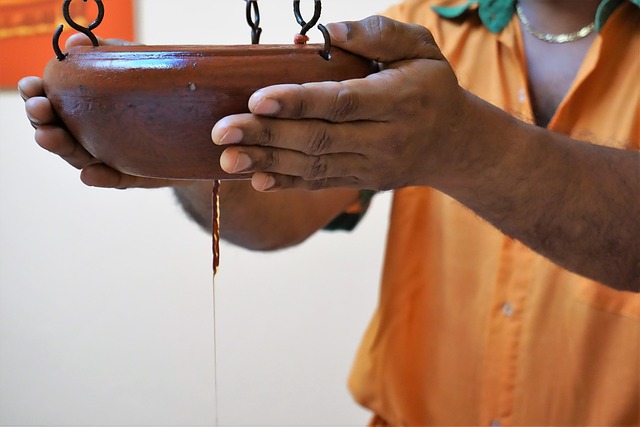Holistic well-being emphasizes the interconnectedness of physical, mental, and emotional health through practices like mindfulness, meditation, yoga, and natural therapies. Stress management programs incorporate these techniques to empower individuals with tools for identifying and coping with stress triggers, leading to improved resilience, mental clarity, and a balanced lifestyle. Mindfulness and movement, including regular physical activity and nature walks, are key components of holistic well-being, offering long-term benefits for both physical and mental health. These practices have proven effective in reducing anxiety and depression, strengthening mental resilience through comprehensive stress management programs.
“Uncover the secrets to achieving holistic physical and mental well-being with our comprehensive guide. In today’s fast-paced world, balancing body and mind is crucial for optimal health. We explore effective strategies such as understanding the interconnectedness of well-being, implementing stress management programs, and incorporating mindfulness practices.
Discover how these holistic approaches can transform your life by enhancing resilience, reducing stress, and fostering overall harmony. Get ready to embark on a journey towards a healthier, happier you, starting with our detailed analysis of stress management programs.”
- Understanding Holistic Well-being: Uniting Body and Mind
- Stress Management Programs: A Comprehensive Overview
- Incorporating Mindfulness and Movement for Optimal Health
- Nurturing Mental Resilience Through Holistic Practices
Understanding Holistic Well-being: Uniting Body and Mind

Holistic well-being refers to an integrated approach that considers the interconnectedness of our physical, mental, and emotional states. It’s not just about treating the symptoms but addressing the root causes of dissatisfaction and dis-ease. By uniting body and mind, holistic practices aim to create a sense of balance and harmony, ultimately fostering optimal health and well-being.
This approach often involves stress management programs that combine techniques like mindfulness, meditation, yoga, and natural therapies. These activities help individuals develop self-awareness, manage their stress responses more effectively, and cultivate a deeper connection with themselves. Understanding the intricate link between physical health and mental clarity, these practices enable individuals to nurture both aspects holistically, leading to a more fulfilling and balanced lifestyle.
Stress Management Programs: A Comprehensive Overview

Stress Management Programs play a pivotal role in promoting holistic well-being by offering comprehensive strategies to tackle the ever-present challenge of stress. These programs are designed to empower individuals with tools and techniques to navigate life’s demands while fostering mental resilience. Through a blend of mindfulness practices, cognitive behavioral therapies, and lifestyle interventions, participants gain insights into their stress triggers and learn effective coping mechanisms.
Comprehensive Stress Management Programs often incorporate various elements such as meditation, deep breathing exercises, yoga, and stress-reduction techniques tailored to individual needs. They provide a safe space for individuals to explore and address underlying emotional issues while teaching practical ways to manage daily stressors. By integrating these practices into daily routines, participants can enhance their ability to respond to challenges, improve overall mental clarity, and cultivate a profound sense of calm and balance in both their physical and mental states.
Incorporating Mindfulness and Movement for Optimal Health

Incorporating mindfulness and movement is a powerful strategy for achieving optimal physical and mental health. Mindfulness practices, such as meditation and deep breathing exercises, have been shown to reduce stress levels and promote a sense of calm and clarity. By integrating these techniques into daily routines, individuals can enhance their ability to manage stress, improve focus, and increase overall well-being.
Movement, whether through gentle yoga, aerobic exercise, or even short walks in nature, plays a vital role in supporting physical health. Regular movement helps improve cardiovascular function, strengthens muscles and bones, and boosts energy levels. Additionally, it releases endorphins, often referred to as ‘feel-good’ hormones, which contribute to better mood regulation and can serve as an effective component of stress management programs.
Nurturing Mental Resilience Through Holistic Practices

Nurturing mental resilience is a cornerstone of holistic approaches to physical and mental well-being. Integrating practices such as mindfulness meditation, yoga, and nature walks can significantly enhance an individual’s ability to cope with stress. These activities promote self-awareness, emotional regulation, and a deeper connection with the inner self, all of which are essential for building mental fortitude. By incorporating these holistic practices into daily routines, individuals can develop a more balanced mindset, increasing their overall resilience to life’s challenges.
Moreover, stress management programs that leverage holistic methods have been shown to be highly effective in reducing anxiety and depression. Techniques like deep breathing exercises, progressive muscle relaxation, and keeping a gratitude journal help to calm the mind and body, fostering a sense of peace and well-being. These practices not only alleviate immediate stress but also empower individuals with long-term tools to navigate difficult situations, thereby strengthening their mental resilience over time.
Holistic approaches to well-being, encompassing both physical and mental dimensions, offer a comprehensive strategy for enhancing overall health. By integrating practices such as mindfulness, movement, and stress management programs, individuals can achieve a deeper sense of balance and resilience. These methods not only address immediate symptoms but also foster long-term sustainability, enabling folks to navigate life’s challenges with greater poise and vitality. Embracing holistic principles is a game-changer in cultivating a vibrant, fulfilling life.
